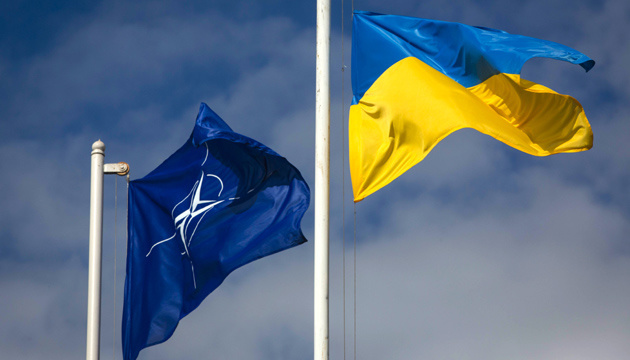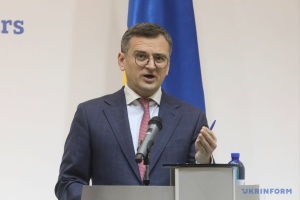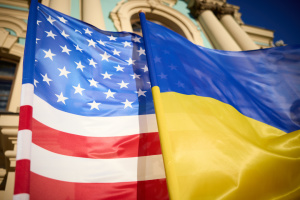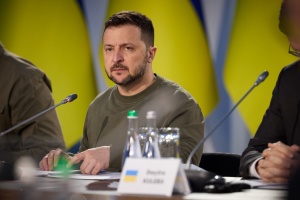
Sovereign Ukraine is key to Euro-Atlantic security – NATO Review
This was said in a NATO Review article, the full text of which is published on the website of the North Atlantic Alliance.
"Russia’s aggressive actions against Ukraine have seriously undermined Euro-Atlantic security. Ukraine has engaged constructively towards a settlement. But the key for the normalisation of relations between NATO, Russia and Ukraine remains Russia’s recognition of Ukraine’s sovereignty, independence and territorial integrity. Sanctions relief in the absence of significant moves would undermine the West’s credibility and risk further destabilisation," the publication says.
The author of the article, Florian Encke, recalls that six years have passed since Russia illegally annexed Crimea, an integral part of Ukraine’s territory. This was the first time since the end of the Second World War that a country in Europe tried to change borders by force. This gross violation of international law was followed by Russia’s destabilisation of eastern Ukraine, where it has supported militants in waging war with Ukrainian forces and sent in its own troops. "In response, NATO has firmly supported Ukraine’s sovereignty and territorial integrity. It launched the biggest reinforcement of its collective defence since the end of the Cold War. It suspended cooperation with Russia, while remaining open to dialogue. Western nations also imposed sanctions on Moscow," reads the article.
The author criticizes voices in the West advocating for new pragmatism in dealing with Moscow. Some may be doing so out of an interest to return to normal business relations with Russia. Some may be motivated by an understandable concern about the risks posed by the reinforced military activity. Others may believe that compromises are necessary because Russia is needed to resolve many other challenges and crises facing global security.
"NATO Allies have been very clear that they continue to believe that a partnership with Russia, based on the respect for international law and commitments, would be of strategic value. But they cannot and will not compromise on the principles on which the Alliance and security in Europe and North America rests. Russia voluntarily subscribed to the rules-based security order that has served well as the foundation of security in Europe. This order – which has included among other documents the Helsinki Final Act, the Charter of Paris and the NATO-Russia Founding Act – aims to benefit all countries in Europe, based on the principle of sovereign equality and the indivisibility of security. It is neither hostile to Russia nor obsolete," the article emphasizes.
At the same time, the author notes that Russia is obviously trying to pursue its security interests through a delineation of spheres of influence among major powers, which is completely unacceptable. It would bear tremendous risks for European security. Ukraine’s sovereignty and integrity is at the heart of the rules-based European order. Its security interests must be fully taken into account.
The author recalls that in 1994 Ukraine, which had inherited the third-largest nuclear arsenal in the world, joined the Non-Proliferation Treaty as a non-nuclear weapon state. In support of this, Russia, along with the United States and the United Kingdom – later joined by China and France – gave security assurances to Ukraine as part of the Budapest Memorandum. This included respect for Ukraine’s independence, sovereignty and existing borders.
"Sanctions are a legitimate countermeasure against Russia’s violations of international law, while avoiding any further military escalation. They were carefully designed to target members of the Russian elite responsible for actions undermining or threatening the territorial integrity, sovereignty and independence of Ukraine. They also put stress on Russia’s long-term development in the oil, gas and banking sectors, in particular, to press the Russian leadership to change course. They do not target the Russian population directly. This is clearly a measured response," the report says.
"Clearly, the fight for independence remains Ukraine’s national task. It is up to Ukrainians to decide how to restore territorial integrity without undermining sovereignty and independence. Ukrainians need and must be able to decide their own future. They have made it clear that they wish to live in a prosperous and peaceful country, firmly anchored among European democracies committed to common values. In the future, the majority sees the country in the European Union and NATO… Ukraine continues to be in need of Western support," the author summed up.




